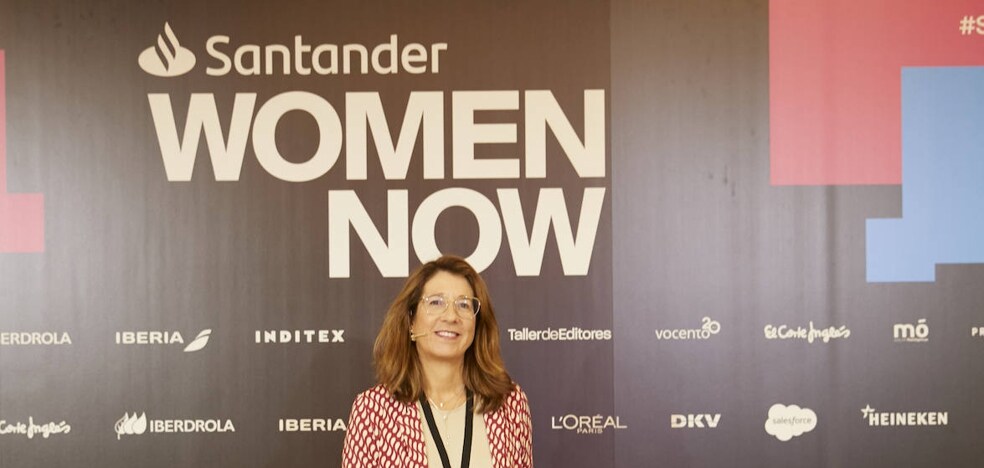Cristina Álvarez, director of T&O of Banco Santander. /
Cristina Álvarez, director of T&O Europe and Spain Banco Santander Spain, believes that technology is not an end, but a means to make companies better and society more prosperous
The digital transformation in which society is immersed may be the most disruptive moment that has been experienced in a long time. It is for people, but also for companies and their businesses. And they do not have so much to do with instruments (artificial intelligence, servers, clouds, robots, data, etc.), which are nothing more than means, but with the ultimate goal: to be better, as a community and as companies; both one and the other.
Cristina Álvarez, director of T&O Europe and Spain, Banco Santander Spain, spoke about this change and the types of leaders that are needed during her participation in Santander WomenNOW, the Vocento event on female leadership. In her opinion, the technology to achieve change is already developed and available, but for now we only see a small part, “the tip of the iceberg” she called it, of what the digital transformation of society will mean in a sense global.
On this path, the real challenge, according to this Telecommunications engineer and one of the most relevant Spanish voices in the world of new technologies, is “to ensure that it does not really generate more differences, that it does not widen the gap that we talk about so much , and that it is at the service of the prosperity of society and of companies».
To achieve this goal, and already in the field of business – the one that Álvarez knows and of which he presented numerous practical examples during his speech – «other types of leaders are needed, digital leaders» who also practice empathy.
Leadership of people from empathy
«Empathy has given me -he recalled- very good results in my professional career. Put yourself in the shoes of the one in front of you! If you are not able to understand why the other has another point of view, your organization will not progress in the world we are heading to », she warned.
When talking about leaders, he wanted to make it clear that he is not referring to the first swords of the big technology companies, but to those members of the companies with positions of responsibility who have sufficient technological knowledge, but who at the same time are capable of “exciting to the team» so that they get involved in the digital transformation of the company.
«Without the drive of the team, nothing is achieved; if you can’t answer the question ‘and what is this worth to me’ you will fail », he recounted from his own experience at Telefónica, where he was before Santander. Success will depend on this: «80% is how they have managed the change in people; 20% technology », he said.
A change in business culture
More than achieving the change that clients are demanding, with external signings, Álvarez advocates recycling or re-education of the people who are already part of the teams. Hence, “talent management” is, from his point of view, another of the keys to digital transformation, which has more to do with people than with tools.
«Technology is copied, culture is not. And in this transformation, what works for one company does not have to work for yours. This, for me, requires a lot of leadership », she concluded.
Thus, he recalled that technology is not the end, but the means that helps you as an organization to work differently. This change is something that no company will be able to avoid, although depending on the sectors in question they will have to assimilate it at a different speed. Álvarez pointed out the media, financial services, retail and telecommunications as those activities where the scenario requires more urgency. “But everyone, to a greater or lesser extent, will be disrupted,” he concluded.
#tip #iceberg #digital #transformation









